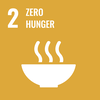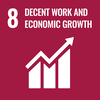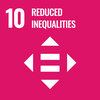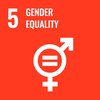The Most Important in Brief
The Olive Branch Foundation (OBF) drives grassroots projects for refugees, returnees, internally displaced people (IDPs), and host communities in high-risk, underserved areas, places where few are willing to go. We choose projects created by local communities based on their real needs, not imposed from others. We dedicate our efforts to raising the funds that make these locally driven solutions possible. Our beneficiaries are people living in some of the world’s poorest and most fragile regions, refugees, returnees, IDPs, host communities and those most at risk of exclusion or neglect, who, due to displacement, conflict, or extreme poverty, often have no access to land to cultivate, food security, education, or stable employment. Their marginalization is compounded by social tensions and the fact that these areas are frequently overlooked by traditional donors because of high perceived risks. That’s why we support livelihood projects designed by those directly affected, and we rely on experienced local staff who understand the context from within. We believe in solutions that are concrete, replicable, and scalable. For example, in Nepal, OBF is enabling 80 women to generate income through four community enterprises (two for leaf plates and two for spices/turmeric), while also building entrepreneurial and technical skills. In Burundi, a soap-producing cooperative now employs 20 people, including 9 women, who have used their profits to buy land, expand production, and diversify their soap products. One of the women has even begun raising goats with her earnings. The scalability of the model is built into its design: once a cooperative becomes self-sustaining, it is required to support the launch of a new cooperative. On the ground, support is provided through technical and vocational education and training (TVET) and an initial investment, followed by continuous monitoring and evaluation. Cooperatives are accompanied until they reach full independence, after which members manage operations autonomously and reinvest profits, sometimes even offering internal loans to other members. We believe that choosing carefully where to invest can lead to real, lasting change.
-
Purpose (SOGC)
Olive Branch Foundation supports grassroots projects designed by local communities in fragile, underserved areas where few NGOs operate and where donors and investors are largely absent. Our goal is to foster autonomy, empowerment, and social and peace cohesion among refugees, returnees, displaced people, and host communities. We back locally led, bottom-up solutions that respond to real needs and build long-term resilience. Every initiative we support is rooted in the lived experience and leadership of those directly affected.
-
The Most Important in Brief
The Olive Branch Foundation (OBF) drives grassroots projects for refugees, returnees, internally displaced people (IDPs), and host communities in high-risk, underserved areas, places where few are willing to go. We choose projects created by local communities based on their real needs, not imposed from others. We dedicate our efforts to raising the funds that make these locally driven solutions possible. Our beneficiaries are people living in some of the world’s poorest and most fragile regions, refugees, returnees, IDPs, host communities and those most at risk of exclusion or neglect, who, due to displacement, conflict, or extreme poverty, often have no access to land to cultivate, food security, education, or stable employment. Their marginalization is compounded by social tensions and the fact that these areas are frequently overlooked by traditional donors because of high perceived risks. That’s why we support livelihood projects designed by those directly affected, and we rely on experienced local staff who understand the context from within. We believe in solutions that are concrete, replicable, and scalable. For example, in Nepal, OBF is enabling 80 women to generate income through four community enterprises (two for leaf plates and two for spices/turmeric), while also building entrepreneurial and technical skills. In Burundi, a soap-producing cooperative now employs 20 people, including 9 women, who have used their profits to buy land, expand production, and diversify their soap products. One of the women has even begun raising goats with her earnings. The scalability of the model is built into its design: once a cooperative becomes self-sustaining, it is required to support the launch of a new cooperative. On the ground, support is provided through technical and vocational education and training (TVET) and an initial investment, followed by continuous monitoring and evaluation. Cooperatives are accompanied until they reach full independence, after which members manage operations autonomously and reinvest profits, sometimes even offering internal loans to other members. We believe that choosing carefully where to invest can lead to real, lasting change.
-
Goals
Our goals are to enable refugees, returnees, and displaced people to generate their own income through cooperatives and micro-projects; to strengthen food security and access to land through community-driven livelihood solutions; and to promote youth and women’s leadership in local development. We aim to reduce social tensions by supporting inclusive spaces and joint initiatives between displaced and host communities, facilitate the durable reintegration of returnees, and build the capacity of local partners to design, manage, and sustain their own projects.
-
Principles
We are guided by the belief that those directly affected by displacement and poverty are best placed to define their own needs and lead the solutions. We are committed to dignity, local ownership, equity, and participation. We work where others often don’t, in fragile, high-risk areas, because we believe that every community, no matter how remote or marginalized, deserves to be heard and supported. Our approach is bottom-up, rooted in trust, long-term engagement, and partnership with experienced local actors.
-
Measures
Identify and fund community-designed livelihood projects in fragile and underserved areas. Support the creation and strengthening of cooperatives and micro-enterprises led by refugees, returnees, and host community members Provide seed funding, tools, and training to promote income generation and self-reliance. Facilitate dialogue and joint activities to foster social cohesion between displaced and host populations. Partner with trusted local organizations that understand the context and have long-term presence on the ground. Prioritize projects that involve and empower women and youth as key community actors. Monitor and evaluate projects through regular reporting and direct engagement with local stakeholders. Offer mentoring and capacity-building for local partners to strengthen long-term sustainability.
-
Financing
Stiftung Olivenzweig is currently funded by a core philanthropic foundation that shares our vision and supports our grassroots approach. To increase our impact and scale up our activities, we are actively expanding our fundraising efforts and seeking additional support from individuals, foundations, and institutional donors. Our goal is to diversify our funding base to ensure long-term sustainability and reach more communities in fragile and underserved areas. Transparency and accountability remain central to how we manage every contribution.
Area of Impact
Olive Branch Foundation supports grassroots projects designed by local communities in fragile, underserved areas where few NGOs operate and where donors and investors are largely absent. Our goal is to foster autonomy, empowerment, and social and peace cohesion among refugees, returnees, displaced people, and host communities. We back locally led, bottom-up solutions that respond to real needs and build long-term resilience. Every initiative we support is rooted in the lived experience and leadership of those directly affected.
The Olive Branch Foundation (OBF) drives grassroots projects for refugees, returnees, internally displaced people (IDPs), and host communities in high-risk, underserved areas, places where few are willing to go. We choose projects created by local communities based on their real needs, not imposed from others. We dedicate our efforts to raising the funds that make these locally driven solutions possible. Our beneficiaries are people living in some of the world’s poorest and most fragile regions, refugees, returnees, IDPs, host communities and those most at risk of exclusion or neglect, who, due to displacement, conflict, or extreme poverty, often have no access to land to cultivate, food security, education, or stable employment. Their marginalization is compounded by social tensions and the fact that these areas are frequently overlooked by traditional donors because of high perceived risks. That’s why we support livelihood projects designed by those directly affected, and we rely on experienced local staff who understand the context from within. We believe in solutions that are concrete, replicable, and scalable. For example, in Nepal, OBF is enabling 80 women to generate income through four community enterprises (two for leaf plates and two for spices/turmeric), while also building entrepreneurial and technical skills. In Burundi, a soap-producing cooperative now employs 20 people, including 9 women, who have used their profits to buy land, expand production, and diversify their soap products. One of the women has even begun raising goats with her earnings. The scalability of the model is built into its design: once a cooperative becomes self-sustaining, it is required to support the launch of a new cooperative. On the ground, support is provided through technical and vocational education and training (TVET) and an initial investment, followed by continuous monitoring and evaluation. Cooperatives are accompanied until they reach full independence, after which members manage operations autonomously and reinvest profits, sometimes even offering internal loans to other members. We believe that choosing carefully where to invest can lead to real, lasting change.
- +41 61 278 93 83
- office@stiftungschweiz.ch
- https://stiftungschweiz.ch/
- Basel, Basel-Stadt
- Facebook Profile
- Instagram Profile
- LinkedIn Note
Data according to SOGC.
- Dufourstrasse 49, c/o DUFOUR Advokatur AG, 4052 Basel, CH
- June 12, 2023
- Eidgenössische Stiftungsaufsicht ESA
-
SOGC entry April 18, 2024
-
SOGC entry February 13, 2024
-
SOGC entry November 29, 2023
-
PricewaterhouseCoopers AG (CHE-390.062.005) SOGC Auditorauditor
-
Chiara Polti SOGCdirector
-
president of the committee of founding
-
Hans Helmut Buss SOGCmember of the Foundation Board
-
Vincent Chetail SOGCmember of the Foundation Board
-
member of the Foundation Board
-
member of the Foundation Board
Last updated on June 24, 2025




